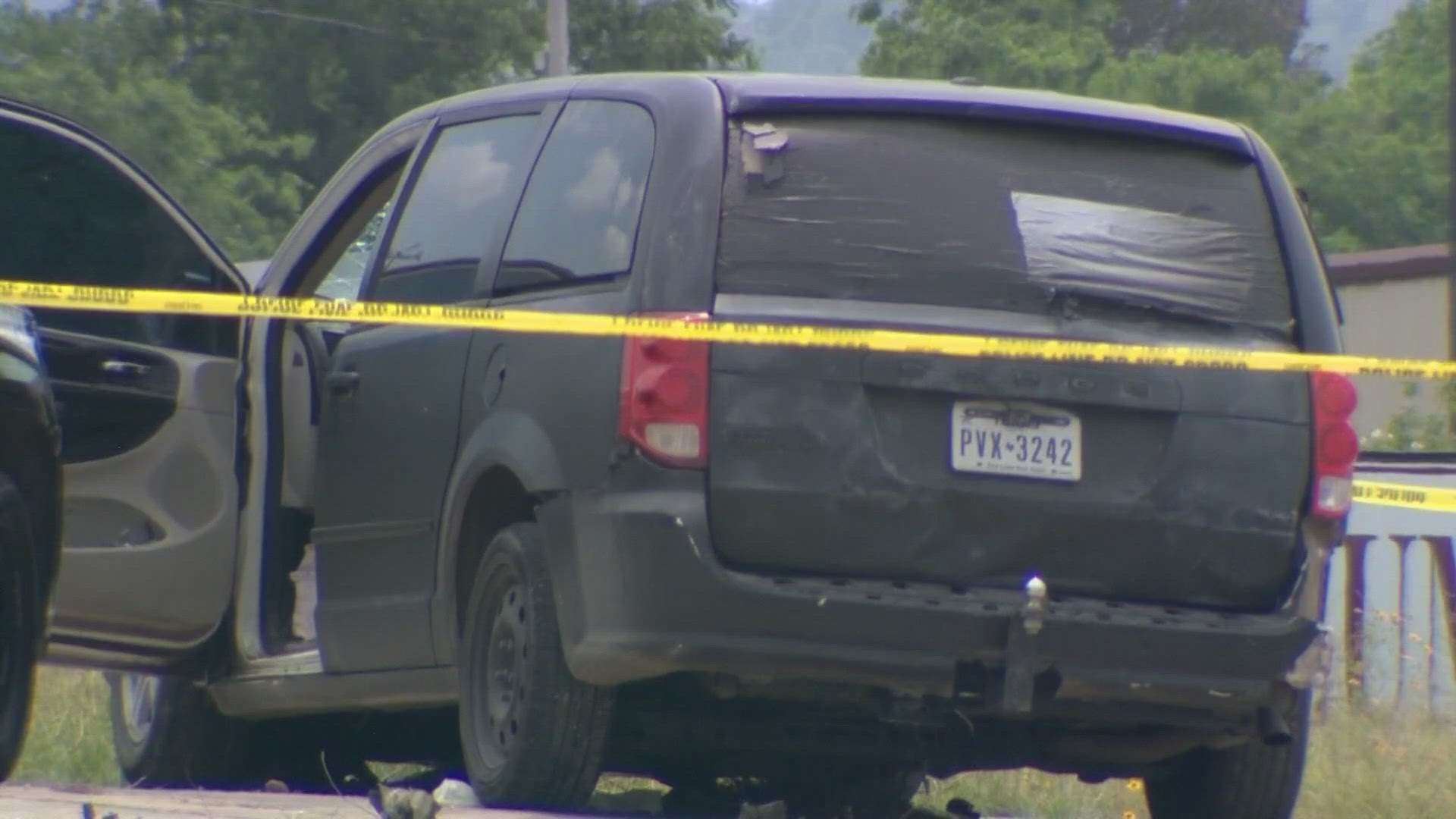SAN ANTONIO — The parents of a San Antonio man shot dead by a Texas Department of Public Safety trooper have sued, accusing him of using excessive force in the April incident that resulted in Luis Navarro's death.
The federal lawsuit, filed Wednesday, claims Navarro wasn't armed, didn't pose a danger and was trying to surrender when Apolonio Gomez shot him in the chest April 29. The encounter was preceded by a pursuit by law enforcement.
"At no point after exiting his vehicle did Mr. Navarro pose a threat to Trooper Gomez or anyone else," the suit alleges. "As Gomez shouted at Mr. Navarro and pointed his gun at him, Mr. Navarro took steps backward to de-escalate the situation and demonstrate that he was not a threat... there was simply no need for Gomez to use deadly force."
A brief video clip accompanying the release by San Antonio-based Hill Law Firm appears to show Gomez discharging his weapon at Navarro, who is standing and doesn't appear armed. He immediately crumples to the ground after being shot, at which point Gomez is seen handcuffing him.
Officials in April said troopers tried to pull Navarro over when he "tried to evade," resulting in a high-speed chase that ended when the car Navarro was driving crashed. Contrary to the lawsuit's claims, DPS officials said at the time that Navarro was ignoring commands when Gomez tried to use a Taser on him. (The lawsuit makes no mention of a Taser.)
When that didn't have an effect, DPS said, Gomez shot him in the chest. Navarro, 37, died after being taken to a local hospital.
"The Navarro family deserves to still have their son, brother and father alive," Justin Hill, one of the attorneys representing the plaintiffs, said in a release. "Trooper Gomez should have spoken to Luis rather than needlessly killing a surrendering man."
Navarro's parents are seeking expenses to pay for their son's funeral and burial services, as well as punitive and compensatory damages "in the highest amount allowed by law" for mental anguish.
DPS spokesperson Kenny Mata said the agency "does not discuss pending litigation."

